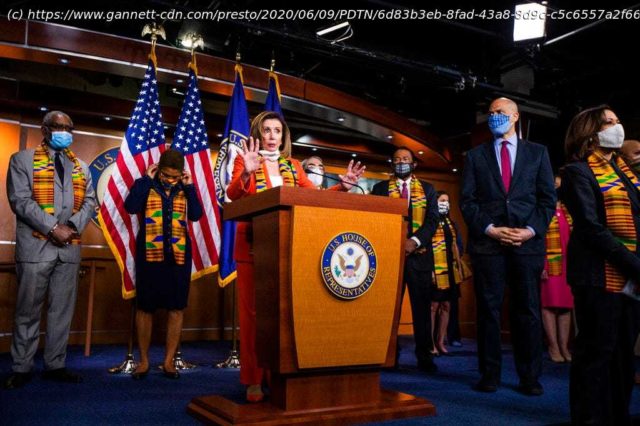Washington – Democrats in Congress are proposing an overhaul of police procedures and accountability after the mass protests over the deaths of black Americans at…
Washington – Democrats in Congress are proposing an overhaul of police procedures and accountability after the mass protests over the deaths of black Americans at the hand of law enforcement.
The Justice in Policing Act is among the most ambitious law enforcement reforms from Congress in years and confronts several aspects of policing that have come under strong criticism, especially as more and more police violence is captured on cellphone video and shared across the nation and the world.
The package limits legal protections for police, creates a national database of excessive-force encounters and bans police choke holds, among other changes. The changes, if enacted, would have massive implications on policing in the U. S.
It’s not clear whether the legislation will pass, especially in an election year and amid calls to “defund the police” and growing protests. President Donald Trump has tried to set himself up as a “law and order” leader and has criticized the package, claiming Democrats have “gone CRAZY.”
A few things to know about the bill and how it could make a difference:
Changing Federal Civil Rights Law
Under the proposal, the federal civil rights law that governs police misconduct would no longer require prosecutors to prove that an officer’s actions were willful, a high burden of proof. The law would allow an officer to be charged for acting with reckless disregard for someone’s life, causing that person’s death.
Under the current law, it is federal crime to willfully deprive someone of their civil rights under the color of authority, but the officer also must have known what they were doing was wrong and against the law and decided to do it anyway. To prove that crime, prosecutors would need to convince a jury that the force used was more than what would be reasonably necessary to arrest or subdue a suspect, meaning convincing jurors that in the middle of an arrest the officer made a clear and willful decision to cause someone’s death.
That was a burden of proof that prosecutors said they couldn’t meet in the case of Eric Garner when they declined to bring charges against Officer Daniel Pantaleo last year.
Qualified Immunity
Police officers are generally not held personally liable for anything that happens on the job, including when someone dies.






